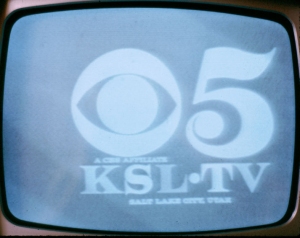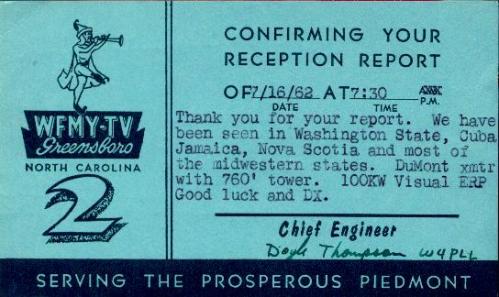 Until a few days ago, I was the blogger in the family. On my wife’s suggestion early this year, I launched this site to track the layoffs that were then a daily nightmare in newsrooms from coast to coast. More recently, my focus has been on what happens next, and how all of us can stay relevant–and working.
Until a few days ago, I was the blogger in the family. On my wife’s suggestion early this year, I launched this site to track the layoffs that were then a daily nightmare in newsrooms from coast to coast. More recently, my focus has been on what happens next, and how all of us can stay relevant–and working.
When I walked away from my reporting job at WPLG in Miami at the height of the job-shedding, my blog got a sudden flood of attention, being picked up and linked by many of the major trade publications and websites. It happened again when I wrote about NBC’s purchase of local domain names from coast to coast.
The other day my wife showed me what real web traffic looks like. You see, she’s now the blogger in the family.
I could wail and moan about the injustice of it all–I write about journalism, for God’s sake, and the fate of a Nation and all that. I write about jobs, and history and technology and blah blah blah.
My wife? You may know her blog by now. It’s certainly been in the papers and all over TV and the web: she writes My Husband is Annoying, a site devoted to my quirks and eccentricities, like having a favorite green sweater (okay, sure, it does show up a lot in our vacation photos) and sometimes finding it difficult to get out of bed in the morning (it’s not just me, right?)
Well, as a joke, she posted a few less-than-flattering photos of yours truly, and described what it’s like to live with me. And we figured, hey, our friends will get a kick out of this. Post it to Facebook and get some LOLs.
A few Facebook comments and Tweets later, and the wife’s blog was mentioned by a hyperlocal website here in Brooklyn, the Brooklyn Heights Blog, which got things rolling with the pithy and classic headline, “Area Man is Annoying Husband.”
 As Clay Shirky, author of Here Comes Everybody could have told me, things were about to get weird, and fast. First came the commenters. A few LOLs, but a few “you sucks” also, and some strange, very personal comments on the nature of our marriage and my wife’s motive in creating the blog. It was a blunt reminder that the media has shifted forever to an everybody-can-speak-without-your-permission dynamic, and the Old Media gatekeepers have no gates anymore.
As Clay Shirky, author of Here Comes Everybody could have told me, things were about to get weird, and fast. First came the commenters. A few LOLs, but a few “you sucks” also, and some strange, very personal comments on the nature of our marriage and my wife’s motive in creating the blog. It was a blunt reminder that the media has shifted forever to an everybody-can-speak-without-your-permission dynamic, and the Old Media gatekeepers have no gates anymore.
As is happening in digital newsrooms around the world, editors post news stories online, reporters and anchors blog about their lives and hobbies–and then here comes everybody; some loving it, others eviscerating it. How are stations, websites and papers handling comments? My wife and I debated it in capital-J fashion: give everyone their say no matter how offensive? Keep the blog light and fun, as it was intended? Or only weed out the truly sickening and borderline threatening? Where’s the line?
My wife, a strong and amazing woman, posted every insulting comment–and the LOLs and You Go Girls–save one, which was truly unfit to print.
Then came the second wave: the media. Snarky New York blog Gothamist wrote up the site, as did a Dutch blog that translated My Husband is Annoying (we think) as “Mijn Man is Vervelend.” The pageviews began to skyrocket. My LocalNewser record high fell quickly and it wasn’t even close.
Then the New York Daily News came calling, putting my wife and I across an entire page of the paper, and posting a video interview on the front page of the DN’s website. I found odd satisfaction and pride in the News proclaiming me “New York’s most annoying husband.”
That article landed on BuzzFeed, and you could literally watch my wife’s pageviews jump by the hundreds every time you hit “refresh.” It was astonishing.
Before we were out of bed the morning the News hit the streets, bookers from network morning shows and syndicated daytime shows were calling, along with radio stations from Florida to California.
I was recognized while shooting a story for WPIX at the New York Transit Museum by someone (I thought they were going to say “aren’t you the guy from TV?”) who said, “you’re the husband. From the paper. The annoying husband.”
This truly is a demonstration of the speed we’re working at these days. Bret Favre signs with the Vikings and the reporter with the scoop goes to Twitter, not TV. Why? Have to. Can’t afford to wait. It’s a new world. If you can remember three-quarter decks? Well, you’ve got to re-wire your brain and adjust to the new speed.
It’s fast. And we, as journalists, don’t really have any access to the brakes anymore. We can’t slow something down when it’s moving too fast. If we do, all that will happen is we stop moving forward and other journos–or just the masses–will tell the story on their own.
Here comes everybody.



 DISPATCH FROM THE FRONTLINES: Gina Callaghan
DISPATCH FROM THE FRONTLINES: Gina Callaghan DISPATCH FROM THE FRONTLINES: John P. Wise
DISPATCH FROM THE FRONTLINES: John P. Wise A lot of the fun started seeping out of local television when call letters were foolishly replaced with cookie-cutter network/channel number IDs like ABC7 and NBC5. For a person who plays a pretty mean game of call letter trivia (wanna know what WIS, WGN, WSB, WTOC and WFTS stand for? I’m your guy), the perfectly idiotic march away from decades of history that all those call letters represented was depressing indeed.
A lot of the fun started seeping out of local television when call letters were foolishly replaced with cookie-cutter network/channel number IDs like ABC7 and NBC5. For a person who plays a pretty mean game of call letter trivia (wanna know what WIS, WGN, WSB, WTOC and WFTS stand for? I’m your guy), the perfectly idiotic march away from decades of history that all those call letters represented was depressing indeed.






